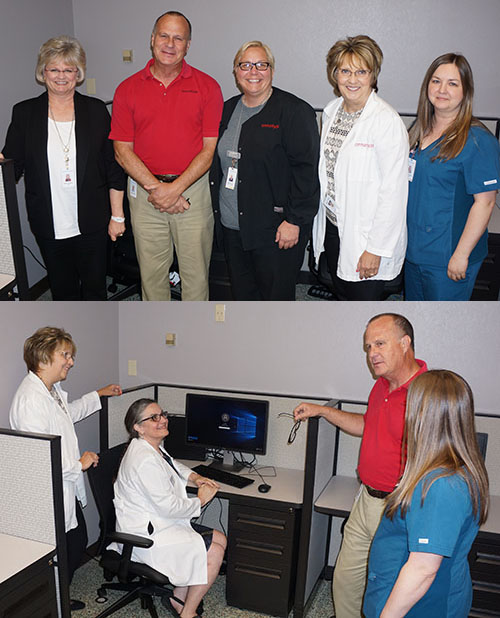
A high-quality graduate nursing program relies on health-care professionals known as preceptors to supervise students while they complete clinical rotations in health-care settings. Anna Jarrett, University of Arkansas assistant professor of nursing, is conducting brown bag sessions this summer for preceptors in the Doctor of Nursing Practice degree program to introduce them to curricular changes in the D.N.P. program.
The Eleanor Mann School of Nursing at the U of A began offering the D.N.P. in the fall of 2013. Last year, Jarrett led a team that wrote a three-year Health Resources and Services Administration grant for $1 million. The grant supports the development of a clinical training program to increase the number of advanced practice registered nurses to meet the health and wellness needs of Arkansas' medically underserved populations. It enables the nursing school to prepare preceptors who will support the clinical education of the D.N.P. students.
Preceptors supervise clinical hours of graduate students and ensure that students complete work satisfactorily at the clinical site. The nursing school approves the selection of preceptors to participate in the academic programs.
During a break in recent training at Community Clinic in Springdale, a small group of preceptors visited a new resource center and computer lab Community Clinic has established for D.N.P. students who will work in the clinic. They also provide each student with a tablet for electronic health record access.
The Doctor of Nursing Practice degree was developed to meet the changing demands of the nation's complex health care environment. D.N.P.-prepared advanced practice registered nurse practitioners have scientific knowledge and advanced clinical expertise to ensure quality patient outcomes in diverse health-care settings. The U of A offers two D.N.P. concentrations: the family nurse practitioner and the adult-geriatric acute care nurse practitioner. Post-baccalaureate or post-master's programs of study are offered. The coursework for the degree program is offered online through the Global Campus, and the program requires occasional visits to campus.
Community Clinic of Northwest Arkansas was the first clinical partner secured for the clinical training program. One goal of the grant is to expand to all of Northwest Arkansas in year two, and include all of Arkansas in year three. To date, the grant team has secured agreements with four other health systems. The three year goal is to secure at least seven clinical partners. The clinical partnership establishes learning opportunities for a cohort of students for the full three-year program. Students will no longer have to search for preceptors, and clinical partners will have a steady stream of "practice ready" advanced practice registered nurses prepared as family nurse practitioners or adult-geriatric acute care nurse practitioners as potential employees.
Topics
Contacts
Heidi Wells, director of communications
College of Education and Health Professions
479-575-3138, heidisw@uark.edu